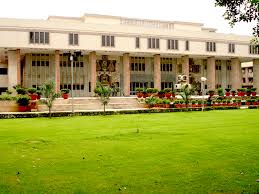-
by sayum
16 February 2026 8:46 AM



In a significant judgment that underscores the balance in matrimonial responsibilities, the Delhi High Court today modified an order pertaining to maintenance pendente lite, emphasizing the principle of ‘capacity to earn’ in matrimonial disputes.
Justices V. Kameswar Rao and Anoop Kumar Mendiratta heard the appeal MAT.APP.(F.C.) 196/2023 filed by Chetram Mali against the order dated April 24, 2022, by the Family Court, Saket. The original order required Mali to pay ₹30,000/- per month as maintenance pendente lite and ₹51,000/- as litigation expenses to his wife, Karishma Saini, under Section 24 of the Hindu Marriage Act, 1955.
The High Court, after scrutinizing the financial statements and existing maintenance orders under the Protection of Women from Domestic Violence Act, 2005 (PWDV Act), noted discrepancies in the maintenance amounts. Initially, Mali was directed to pay ₹21,000/- per month under the PWDV Act, which was then increased to ₹30,000/- by the Family Court without substantial changes in circumstances.
Justice Anoop Kumar Mendiratta, in his judgment, highlighted the importance of considering both parties’ earning capacities in maintenance cases. He observed, “The spouse having a reasonable capacity of earning but who chooses to remain unemployed and idle without any sufficient explanation or indicating sincere efforts to gain employment should not be permitted to saddle the other party with one-sided responsibility of meeting out the expenses.”
The Court noted that Mali’s gross salary was ₹1,04,276/- with an in-hand salary of ₹47,784/-. It also took into account his responsibilities towards his family and existing loan repayments. Conversely, Saini’s potential to earn, given her educational background as a graduate from Delhi University, was also considered.
In its verdict, the High Court set the maintenance pendente lite at ₹21,000/- per month, aligning it with the earlier PWDV Act maintenance amount. Additionally, the Court stipulated an annual increment of ₹1,500/- starting from January 2024 until the disposal of the petition. The litigation expenses and arrears are to be paid as per the Family Court’s order.
Date of Decision: 21st November 2023
CHETRAM MALI VS KARISHMA SAINI
